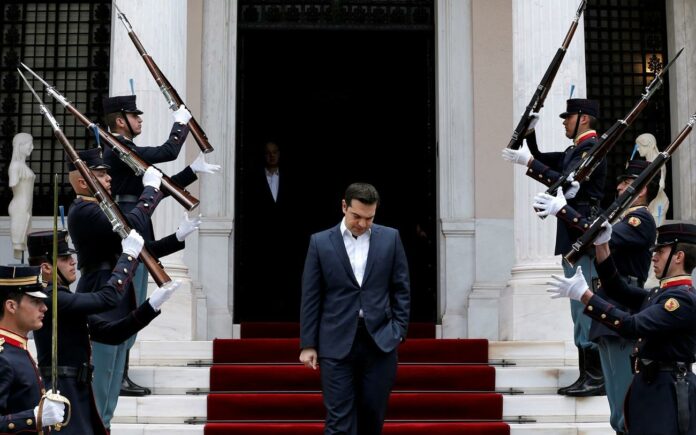The leftst Greek government on Saturday launched a sharp attack on mass media in the country that it considers as hostile, as pressure has dramatically built up over the previous week in the face of its stalled negotiations with creditors to achieve a much-needed first review of the Greek program and with Athens’ request for a Euro summit earning a laconic “no” on the part of European institutions.
In a statement a day before Orthodox Easter is celebrated on Sunday, May 1, the government charged that vested interests are waging — yet again — a “winner takes all” battle.
“Over the last few days, and amid a very difficult and complex negotiation that is in its most sensitive stage, we are witness to an increasingly intense campaign of disinformation and danger-mongering by a large portion of print and broadcast mass media,” was the announcement issued by the prime minister’s office.
The Tsipras government also claims that several recent press reports are “baseless” and are merely trying to create a climate of “disaster” and disagreement between government cadres.
Meanwhile, in a related development, Greece’s representative on the Commission, Dimitris Avramopoulos, referred to a “risk of impasse” over the delayed first review of the Greek program (third bailout).
His comments, carried in the Sunday weekly “RealNews”, also contained the rhetorical question of “whether certain parties wants such a deadlock?”
“The latest development causes a new round of concern over the crucial issue of receiving the (bailout) loans and a restructuring of the (Greek) debt, something that the future of the Greek economy and its growth depends,” he said.
Avramopoulos, who holds the now timely migration policy portfolio on the Commission, also touched on the refugee / migration crisis plaguing the EU, and especially Greece.
He again emphasized the need for greater European support towards Athens to deal with the problem and expressed his concern over several member-states’ unwillingness to host Mideast war refugees.














